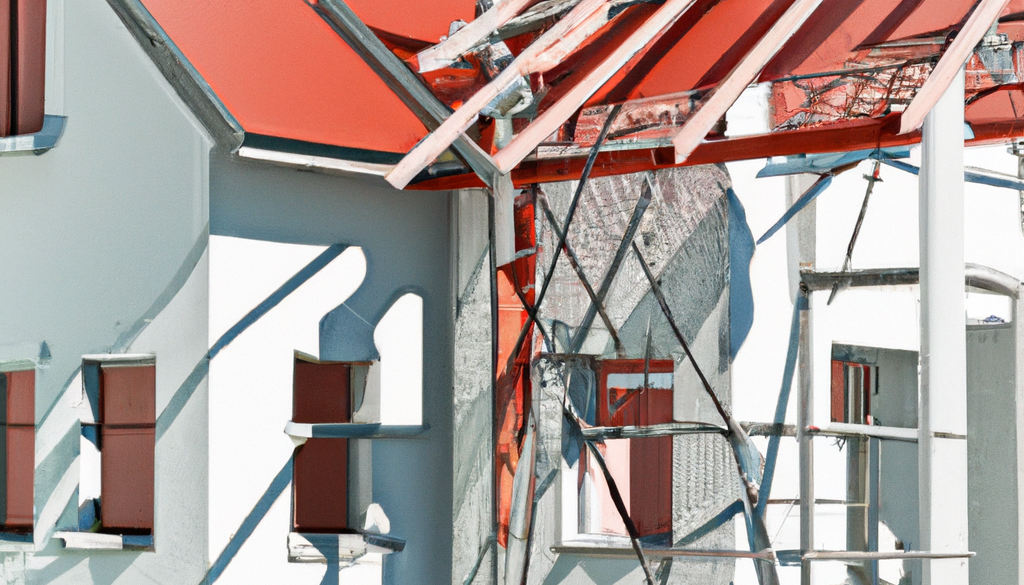According to this legal provision, two variants can be distinguished: some enhancements and changes can be made without the landlord’s permission. However, for most changes, the tenant must obtain prior approval from the landlord or the property management. « The limits of what is possible without authorization are therefore relatively narrow, » explains the notary and Swiss tenancy law specialist, Hans Bättig.
For example, without asking, it is possible to furnish the rooms, the balcony, and of course, other living spaces, provided that the structural integrity or the external appearance of the balcony or terrace is not affected. Even the installation of a click-together laminate would be possible (if it can be easily removed later). Of course, pictures can be hung or shelves mounted – taking into account the principle that the original condition must be restored. The requirements in this regard are relatively high. If the tenant presents a wall riddled with holes during the inspection, they should expect consequences. It is entirely possible that the property management may consider it a defect or an unauthorized intervention. The tenant is responsible for ensuring that the apartment and all its components are returned to the condition in which they were found.
Parquet flooring installation: Structural changes require written consent from the landlord. If the landlord has agreed, they can only demand the restoration of the previous condition if it has been agreed upon in writing.
Consent: At the discretion of the owner In practice, it should be noted that the protection and careful use of the property have a relatively high priority. Although minor interventions and improvements are generally not a problem, the landlord can refuse them. Hans Bättig emphasizes, « Recent court rulings show that the landlord can refuse consent to any changes made without prior notice. »
The most common requests for prior consent include:
- Extending, insulating, or making other structural changes to the floor or other parts of the apartment.
- Installing a new kitchen.
- Connecting additional household appliances such as washing machines, dishwashers, dryers, etc.
- If the tenant wants to move or even demolish a wall.
- Installing new tiles in the bathroom.
- If the tenant wants to replace carpet with self-installed parquet flooring.
Expert Hans Bättig’s advice to tenants is as follows: « I recommend proposing a written agreement to the owner. » Provided that the proposed modification or enhancement is clearly defined, and if the tenant commits in writing to restoring the previous condition and waives any potential increase in value, it is generally not a problem. « I think that with such an approach, 99 percent of property management companies will give their consent. »
The law also mentions that the landlord can demand that everything be restored to its original condition – but only if this has been agreed upon in writing. So, it is important to identify potential issues and areas of conflict in this regard. If the property management has explicitly agreed that the tenant can paint the children’s room in orange or yellow, they do not have to restore the original condition. Restoration can only be requested when it has been accepted in writing by both parties.
Dreaming of a child’s room in Scandinavian style: but painting work must be approved.
Renovating an apartment – when it gets expensive The principle of a clear written agreement is even more important when it comes to significant renovations and modifications. For example, if a tenant wants to enhance the patio with elegant stone surfaces instead of the gray asphalt floor, or if they have renovated all the rooms or the attic of a rented single-family house and made extensions. For more significant and costly interventions, financial aspects need to be regulated. Because there are dozens of different variants: perhaps the property management covers the cost of materials while the tenant provides the necessary labor. It is also possible that the tenant initially bears all the costs but receives a proportional compensation upon moving out. Thirdly, it is possible that the landlord provides financial support but increases the rent. Once again, if important matters are not clearly and in writing addressed in advance, conflicts could arise later concerning who should pay for and remove what. Furthermore, the tenants’ association has published a brochure on this subject: « The best way is to agree with the landlord on a written agreement that precisely quantifies the money invested and your compensation request when you move out. »
The scope should not be underestimated: « While such cases are relatively rare, in extreme cases, a dispute could result in a very unpleasant lease termination, » notes Hans Bättig. In theory, this could happen if the landlord one day discovers significant changes that have not been approved. The landlord would then ask the tenant to reverse the intervention or bear the resulting costs. If the dispute escalates, no agreement can be found, and as a last resort, lease termination may be threatened.
Renovating the apartment: Avoid surprises It should be mentioned that with vague or missing agreements, the tenant incurs a certain risk. If the tenant acted on their own without obtaining consent, the property management can intervene during the rental period – meaning that the modifications made to the apartment must be reversed, and the original condition must be restored.
Verbal agreements are also delicate: for example, if painting work or a new floor has been installed based on a verbal agreement, the tenant may not necessarily be able to refer to it, and they may not have the necessary evidence to support their case.
In conclusion, if the tenant does not go too far with DIY projects, they can certainly improve and enhance some parts of the apartment. Ultimately, this benefits everyone, as tenants who identify with their home and feel comfortable tend to stay longer and are more satisfied.

